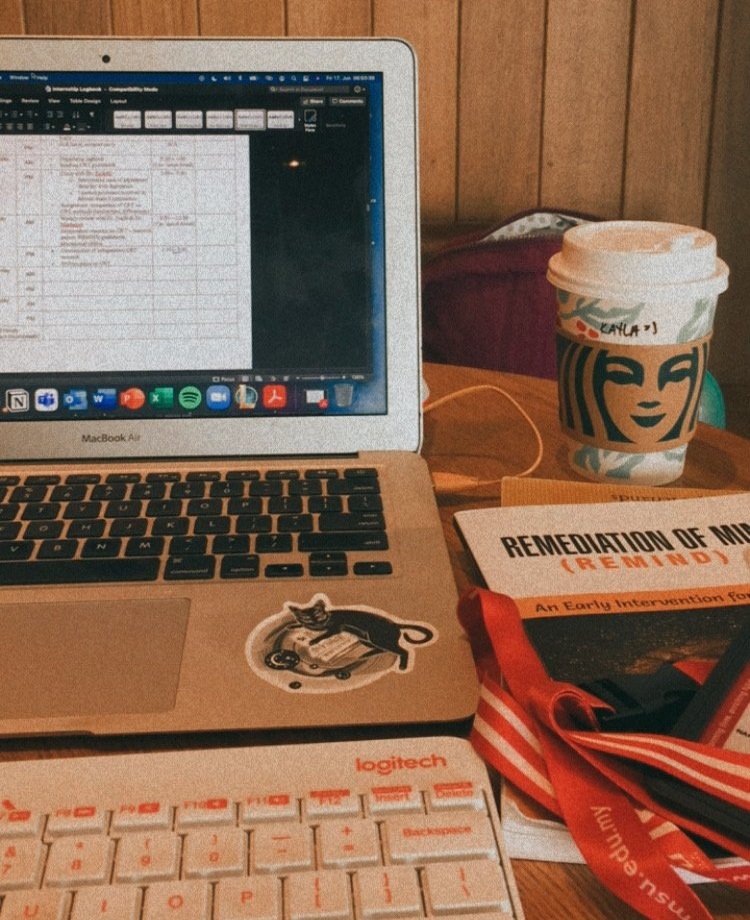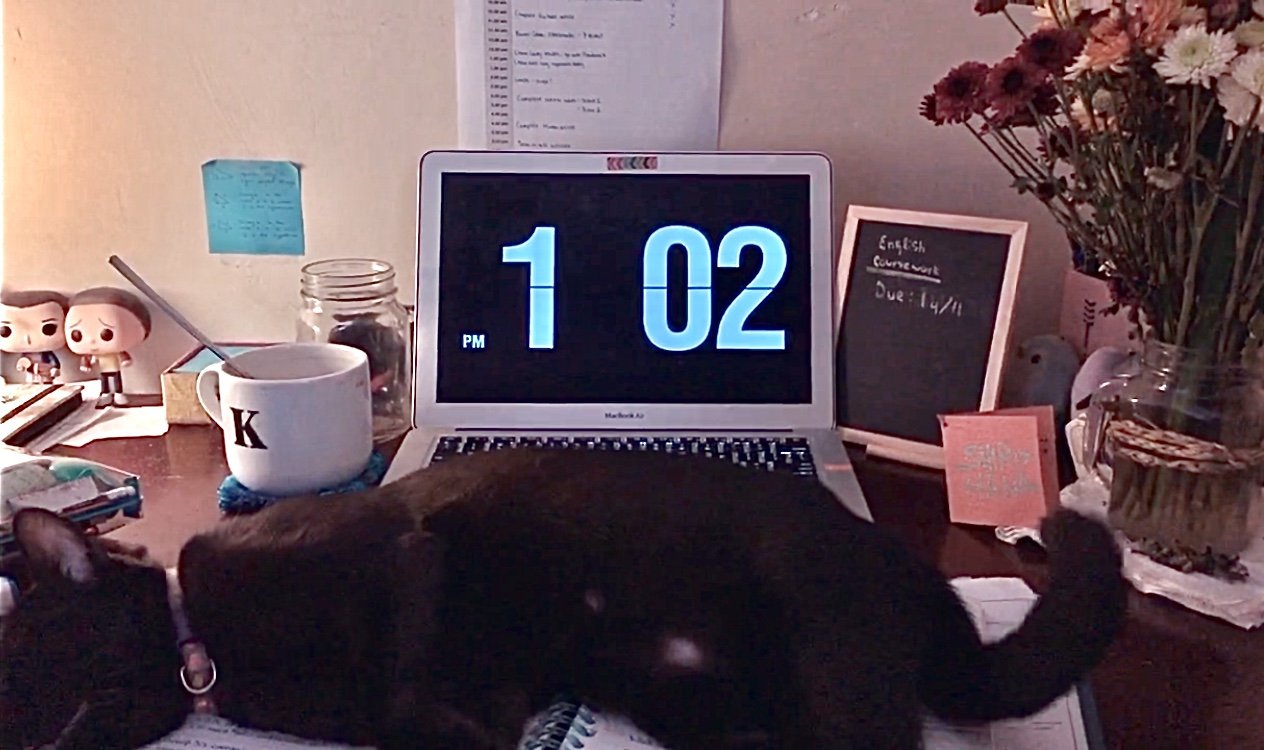
Captured by Vahid Nesro
Experiencing and having to deal with burnout is, in my opinion, not talked about enough in our work and educational environments. Too often than not, we’re told that us being unproductive is an immediate indicator of laziness rather than of emotional or physical strain. Now more than ever us students face the hardships of having to cope with ever-increasingly demanding environments – but not much discussion surrounding this very pressing issue. As a psychology student and an advocate for better mental health awareness, burnout is a problem I’m highly interested in helping to resolve. Seeing as job demands and requirements are only getting more and more rigorous over recent years, it is important to understand how to deal with burnout before heading into your university or career life. I’m no psychologist (yet), but what I can offer you in this article is a humanistic approach to facilitating self-awareness including solutions that have worked for me when dealing with intense burnout of my own. I’d like to stress that what has worked for me may not work for you. Instead, this is how I’ve encountered and battled burnout, and my goal here is to shed some light on this issue so that there’s a mutual sense of solidarity in our experiences dealing with stress as students.
I remember having to cope with the worst burnout I had ever faced when I first arrived on campus at Constructor University. I had been studying O-Levels and A-Levels for two years each, totaling four years, before I arrived at Constructor University. Many people at university do arrive immediately after their high school graduation like I did, but I think that because of so many external factors I just wasn’t able to cope with my first semester. Still, in hindsight, I don’t truly know if a gap year would’ve worked for me either as I had always prided myself as a ‘workaholic’ and relied on work to keep me in a solid routine, which had now been heavily ruined as a result of seemingly endless COVID lockdowns.

What winter on campus looks like; so beautiful and serene.
Captured by Katie Tsung
I arrived on campus in November 2020 – much, much later than everyone else had. COVID-19 made it so that we could arrive on the 1st of November at the latest instead of deferring to the next semester, and it so happened that I was able to organise my flight exactly on time to arrive on the 31st of October. By then, everyone had made friends and it was extremely hard for me to feel grounded in what I was doing every day. Then, the worst of Bremen shone through (or rather, didn’t): skies became grey, rain started to become more frequent, and temperatures dropped. ‘I’m really looking forward to my first winter!’, I naively thought before arriving, but once temperatures dropped below 10° Celsius that was no longer the case. Day by day I sat in my empty, unfurnished room watching the sun rise later and the sun setting earlier for weeks until I couldn’t even tell what time it was anymore.
I had worked hard when I was on my last 4 years of high school but didn’t experience this much burnout. When I started to think about why I wasn’t motivated to study for my December exams, I truly believe it was exacerbated by the weather and me feelings alienated from campus life but brought on by me overworking myself for so long and having my years of routine disrupted. I know I’m not alone in this, but on many occasions, I found myself waking up to go to class and not being able to go. No, I wasn’t tired. No, I wasn’t excusing myself in the morning to sit in my bed and watch Netflix all day. And no, I absolutely wasn’t lazy. I was burnt out. How I knew the difference between laziness and burnout was when I talked to my friend about it, with him and I both sharing a similar sentiment: we dreaded anything to do with work. I want you to think about the differences between an extremely intense feeling of dread, one that reaches the point of a ‘butterflies in your stomach’ feeling, and a more general ‘I hate waking up in the morning for class because I’m grumpy in the morning’ feeling. ‘This’, I said to my friend, ‘is a real problem I need to solve’.

Sometimes studying can feel so monotonous, contributing to feelings of burnout. If you switch up your environments every now and then you just might find it helps make work feel less stressful!
I started to practice self-awareness. No, not the cliché and unhelpful self-love posts you see on social media or in the barrage of self-help books often written by highly unqualified authors, but actual self-awareness. I didn’t force myself to feel or behave in any particularly desirable way, rather whenever I felt overwhelmed before starting my daily work, I would try taking a step back from work and instead focus on how I felt. Was I stressed? Angry? Tired? Frustrated? Anxious? I needed to identify how I felt before I could proceed to actually resolving the issue. Once I thought I knew the emotion, I asked myself why I felt that way. Sometimes I was stressed because I had too much to do on that particular day. ‘Okay’, I told myself, ‘I just have to do as many tasks as I can today. I will stop after I finish the first two tasks on my to-do list or when I start to feel very bad.’.
Surprisingly, I didn’t usually stop there. Most of the time, I’d continue for longer than I initially told myself, but it was just a matter of respecting how I felt in that moment in time and allowing myself room for flexibility in my day. Some days I didn’t work at all, others I was able to work for 8 hours at a stretch. Although this isn’t a feasible strategy in the long run considering most times you have work even when you really don’t want to without control over when you work (for example, in an office job), it is what helps get you on the right track. You don’t just start working like a productivity machine on command, these skills build themselves up from a foundation. If intense productivity appears out of thin air, the chances are that it will disappear as fast, too.

Back in high school, after a study break I’d often walk back in the room to find my cat sleeping on my notes! There’s something special about hanging out with your pet when you’re working - I’ll forever cherish moments like these
Moreover, I cannot emphasise the point of taking a break enough. Every semester I encounter students who say they ‘haven’t studied a single thing on the test’, and then go into the exam room perfectly calm and tell you they got a ‘horrific’ 90% on their exam in a few weeks’ time. What’s important is to not look down on these people, too. Sure, some of them can genuinely take pleasure in one-upping their peers, but they’re struggling with a form of burnout, too. I’ve met my fair share of high achievers who feel crushed by the mere thought of getting anything below 90% for an exam. This, too, can be a big indicator of mentality that has the potential to lead to burnout!
It is so important to treat everyone with kindness and respect, even if you yourself don’t end up receiving it from them. Whether or not they seem like they are going through a hard time is something you can never know until they come forth about it. If you find yourself not enjoying the company of one particular person who may be making you feel bad about your intelligence or productivity, communicate with them. If it isn’t a person you’re particularly close to, then by all means distance yourself from them if you feel that’s the right choice. I take comfort in knowing that I’m in control over my own feelings and actions, and that if I mess up along the way, it should be regarded as a learning experience rather than fuel for self-hatred.
Equally, it’s important to embrace those feelings too, rather than shutting them down. It’s okay for you and me to feel negatively about ourselves from time to time. There is no rush to be the perfect, most productive and disciplined person out there. Productivity is not the only indicator of intelligence, success, or even hard work. You can work hard in so many various aspects of your life without forcing yourself to work a minimum of eight hours a day every day in order to reach a desirable level of success.
At the end of the day, my message to you is to think more holistically. Black-and-white thinking is a common negative thought we automatically assign to ourselves in stressful situations, but if you can recognise them when they come and make a little effort in thinking of alternate reasons than ‘I’m so lazy, I hate myself’, you may be able to find out what the root cause is instead of exacerbating it even more. Ultimately, there is no formulaic solution to the issue of burnout. However, talking about it with friends and possibly a therapist if it become too difficult to bear while also acknowledging and respecting your feelings in that moment will help you feel more grounded in your everyday life. Everyone deserves to give and receive support, and there is absolutely nothing wrong with feeling bad, ashamed, or unproductive because at the end of the day it’s what makes us human – to feel. I really hope my story was able to make you feel comforted, at least a little bit! Make use of as many resources available to you as possible, and most importantly, know that you aren’t alone.
BY KAYLA COLLETT (UK & MALAYSIA) | CLASS OF 2023
